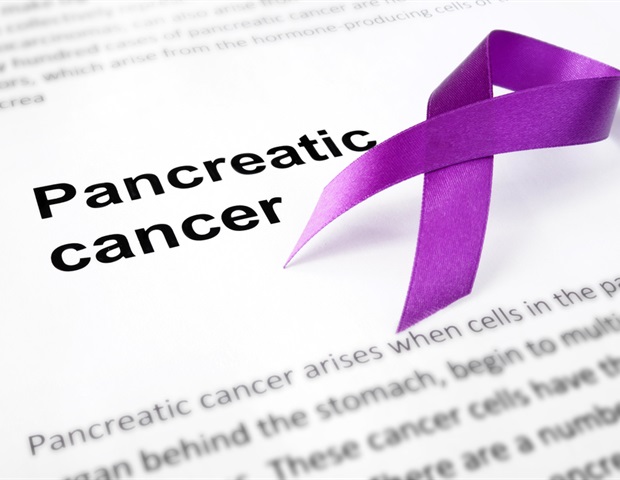
Pancreatic ductal adenocarcinoma (PDAC) is acknowledged as one of the vital deadly cancers, with an estimated five-year survival charge of roughly 10%. This poor prognosis is essentially attributed to the challenges in early prognosis, aggressive tumor biology, and restricted therapy choices. Most PDAC instances are recognized at superior phases attributable to its usually asymptomatic onset, making solely a small proportion of sufferers eligible for probably healing surgical resection. Lately, rising consideration has been paid to the position of intestine microbiota dysbiosis in PDAC, because it seems to affect illness development, immune response, and therapeutic efficacy. Rising research counsel that manipulating the microbiome might current novel approaches to screening, diagnosing, and even treating PDAC. Amongst these methods, fecal microbiota transplantation (FMT) reveals promise as an adjunct remedy, probably bettering affected person outcomes via microbiome modulation.
The human intestine microbiome
The human intestine is dwelling to trillions of microorganisms, forming a posh ecosystem that interacts with the host in quite a few methods. This intestine microbiota impacts numerous physiological processes, together with immune regulation, nutrient absorption, and metabolism. A steady and numerous microbiota typically contributes to well being, whereas shifts in microbial composition can result in illness. Elements reminiscent of weight-reduction plan, life-style, age, and medicine, particularly antibiotics, affect the microbiome composition. Though defining a “wholesome” intestine microbiota is difficult attributable to particular person variation, 5 main bacterial phyla-;Firmicutes, Bacteroidetes, Actinobacteria, Proteobacteria, and Verrucomicrobia-;are usually dominant. Dysbiosis, or microbial imbalance, is more and more implicated within the onset and development of ailments like PDAC, underscoring the necessity to discover intestine microbiota’s position in most cancers and different systemic situations.
Intestine dysbiosis in PDAC
Analysis highlights vital alterations within the intestine microbiota composition of PDAC sufferers in comparison with wholesome people. As an illustration, research utilizing stool samples have recognized a better abundance of Streptococcus and Veillonella species in PDAC sufferers, together with a notable lower in helpful strains reminiscent of Faecalibacterium prausnitzii. Such patterns counsel that particular microbial profiles could also be related to PDAC, probably serving as biomarkers for prognosis and even danger stratification. Different research point out an affiliation between Helicobacter pylori an infection and elevated PDAC danger, suggesting that sure pathogenic micro organism might play a task in PDAC etiology. Nevertheless, variations throughout research level to the affect of geographic and ethnic components on intestine microbiota, highlighting the necessity for bigger, multicenter research to ascertain a complete microbiome profile distinctive to PDAC sufferers.
Dysbiosis, immune regulation, and PDAC
The immune system’s interplay with the intestine microbiota is advanced, influencing each native and systemic immunity. In PDAC, intestine dysbiosis might result in an immune-suppressive microenvironment, enabling tumor development. Research exhibit that microbial elements, reminiscent of lipopolysaccharides from gram-negative micro organism, can activate immune pathways that affect tumor development. As an illustration, experiments with PDAC fashions have proven that depleting the intestine microbiota can cut back tumor development, suggesting that sure bacterial populations may actively assist an immunosuppressive state. Moreover, micro organism can translocate to the pancreas, the place they modulate immune responses inside the tumor microenvironment. These findings emphasize the potential of microbiota-based approaches to recalibrate immune responses in PDAC therapy.
Microbiota-derived metabolites and PDAC
Intestine microbiota produces a wide range of metabolites that have an effect on the host’s physiological processes, together with irritation, immune responses, and even tumor cell conduct. Brief-chain fatty acids (SCFAs), reminiscent of butyrate, are among the many most researched microbial metabolites and have been proven to suppress PDAC cell invasiveness in laboratory settings. Different metabolites, together with indole-3-acetic acid from Bacteroides species, have demonstrated potential to boost chemotherapeutic efficacy in PDAC by modifying tumor cell responses to therapy. Notably, these metabolites might also stimulate immune cell operate inside the tumor microenvironment, providing one other pathway via which microbiome-targeted therapies may profit PDAC sufferers.
FMT in PDAC therapy
Fecal microbiota transplantation (FMT) has proven efficacy in treating microbiota-related situations, notably in infections like Clostridioides difficile. In most cancers remedy, FMT’s potential lies in its capacity to revive a balanced intestine microbiome, probably bettering immune surveillance and affected person tolerance to therapies. Early preclinical research involving PDAC mouse fashions reveal that FMT can affect tumor development and immune infiltration. For instance, PDAC-bearing mice receiving FMT from wholesome donors displayed slower tumor development in comparison with these transplanted with dysbiotic microbiota, underscoring the promise of FMT in modulating the tumor microenvironment.
Combining FMT with most cancers therapies
Rising proof means that FMT might improve the effectiveness of PDAC therapies reminiscent of chemotherapy and immunotherapy. The intestine microbiota is understood to impression drug metabolism and immune responses, which might affect therapy efficacy. For instance, sure micro organism can inactivate gemcitabine, a normal chemotherapeutic for PDAC, thereby lowering its effectiveness. FMT might probably counteract such microbial results, restoring therapy sensitivity. Furthermore, FMT has proven promise in mitigating antagonistic results related to immunotherapy and will maintain potential in enhancing response charges in sufferers present process checkpoint blockade therapies. These findings underscore the potential of FMT as a invaluable adjunct to present PDAC therapies.
Present challenges and views in FMT for PDAC
Whereas FMT holds appreciable promise, its medical utility faces a number of challenges. One main concern is the danger of transmitting infections from unscreened donors, as highlighted by instances of bacteremia linked to FMT. Rigorous donor screening protocols are important to attenuate such dangers, as is sustained analysis to standardize FMT procedures. Moreover, matching donors with recipients primarily based on microbiome traits might improve FMT effectiveness, though such precision-matching approaches are nonetheless beneath growth. As analysis progresses, optimizing FMT protocols, addressing security considerations, and establishing patient-specific methods will probably be important steps towards realizing FMT’s full potential in PDAC administration.
Supply:
Journal reference:
Hu, X., et al. (2024). Intestine Dysbiosis and Fecal Microbiota Transplantation in Pancreatic Most cancers: Present Standing and Views. Most cancers Screening and Prevention. doi.org/10.14218/csp.2024.00017.
